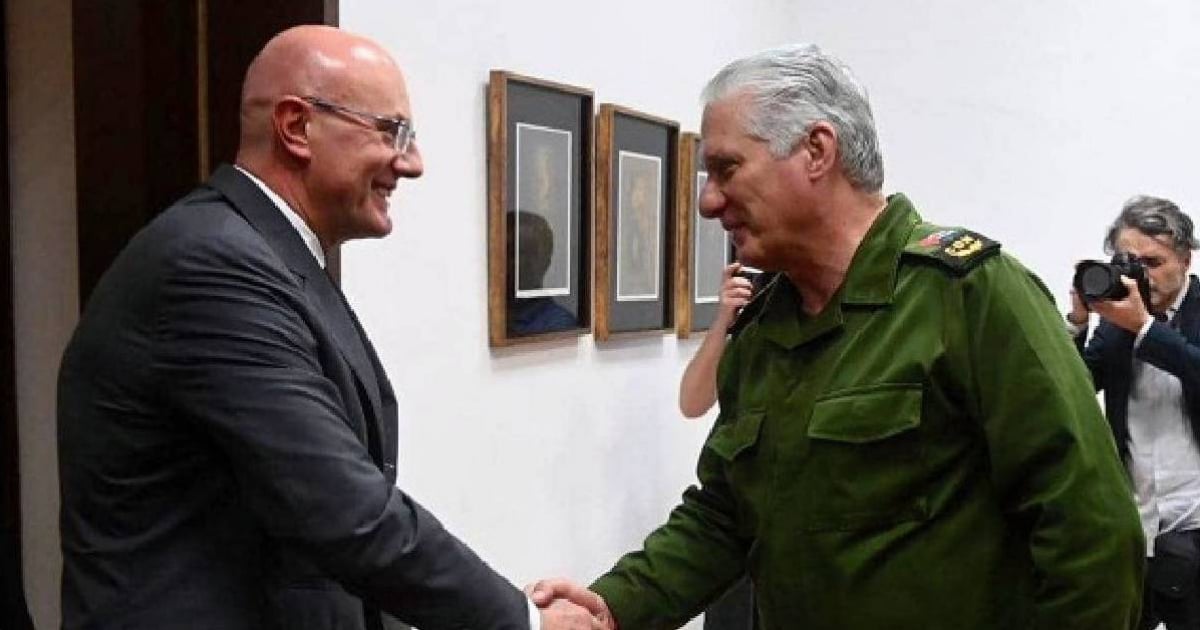
Russia, a former ally of the Cuban regime, has pledged to provide technical and logistical assistance to the island to address the issues facing its electrical sector, according to Sergei Baldin, the trade representative of the Russian Federation in Cuba.
The collaboration includes the supply of spare parts, specialized equipment, and technical support to prevent future energy crises.
"When we talk about Russian-Cuban cooperation in the fuel and energy complex (FEC) as a whole, we are referring to Russia's participation in ensuring Cuba's energy security," Baldin explained.
The statement emerges following the recent energy collapse that left Cuba without electricity for nearly four days, impacting millions of people.
The regime in Havana has stated that the main causes of the crisis are the shortage of fuel, the increasing demand for electricity, and the deterioration of infrastructure, particularly in thermal power plants like Antonio Guiteras, which operates with equipment that is over 35 years old.
In this context, Russia proposed two joint projects: oil production at Boca de Jaruco, the modernization of thermal power plants, and technical assistance to refineries, reported the news agency Tass.
The first initiative aims to increase crude oil extraction in Boca de Jaruco and reduce dependence on imports, while the second focuses on the construction of four new 200 MW units in Habana del Este and Máximo Gómez, using Russian equipment.
For its part, the third proposal includes digital solutions and logistical services for the plants managed by CUPET. Additionally, solutions for the implementation of small hydropower plants and the modernization of sugar mills are being explored, the note emphasizes.
Baldin noted that one of the challenges in realizing these projects is ensuring the necessary liquidity for Russian loans, given both nations' strategic interest in strengthening Cuba's energy security.
However, Moscow, and even less so the Cuban regime, has remained silent about the "costs to the island" of this assistance.
Recently, Army General Raúl Castro made his first public appearance to welcome Lieutenant General Alexander Viacheslavovich Kurenkov, Minister of Emergency Situations of the Russian Federation, in Havana.
The meeting took place against a backdrop of growing concern over the internal situation in Cuba, which in October also received a loan of 65 million dollars from Russia to address the energy crisis.
This credit is accompanied by other agreements, such as a loan of over 60 million dollars intended for the purchase of fuel, and a donation of two million dollars for repairing the island's electrical system.
In March, Moscow approved modifications to the existing credit agreements, allowing Cuba to defer payments and make them in rubles, which eases the pressure on the Cuban economy.
Frequently Asked Questions about Energy Collaboration between Russia and Cuba
What does Russia's collaboration with Cuba in the energy sector entail?
Russia's collaboration with Cuba in the energy sector includes the supply of spare parts, specialized equipment, and technical support to prevent future energy crises. Additionally, joint projects are being planned, such as oil production in Boca de Jaruco and the modernization of thermal power plants. Through these initiatives, Russia aims to ensure Cuba's energy security.
What are the main causes of the energy crisis in Cuba?
The main causes of the energy crisis in Cuba, according to the regime in Havana, are the shortage of fuel, the increase in electricity demand, and the deterioration of infrastructure, particularly in the old thermal power plants. The Antonio Guiteras power plant operates with equipment over 35 years old, which has contributed to the recent energy collapse.
What specific projects has Russia proposed to enhance the Cuban energy sector?
Russia has proposed several specific projects to improve the Cuban energy sector. These include oil production in Boca de Jaruco, the construction of four new 200 MW units in Habana del Este and Máximo Gómez, and the modernization of refineries. Additionally, digital and logistical solutions for the plants managed by CUPET are being explored.
What challenges does the collaboration between Russia and Cuba in the energy sector face?
One of the main challenges for collaboration between Russia and Cuba in the energy sector is securing the necessary liquidity for Russian loans, given the island's economic situation. The "costs to the island" of this assistance have not yet been detailed, which creates uncertainty regarding the financial viability of the projects.
How has the energy crisis affected the Cuban population?
The energy crisis has significantly impacted the Cuban population, leading to prolonged blackouts that affect almost the entire country and forcing people to resort to rudimentary methods for basic needs such as cooking. The situation has sparked public discontent and protests due to the lack of effective solutions from the Cuban regime.
Filed under: